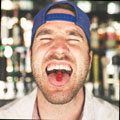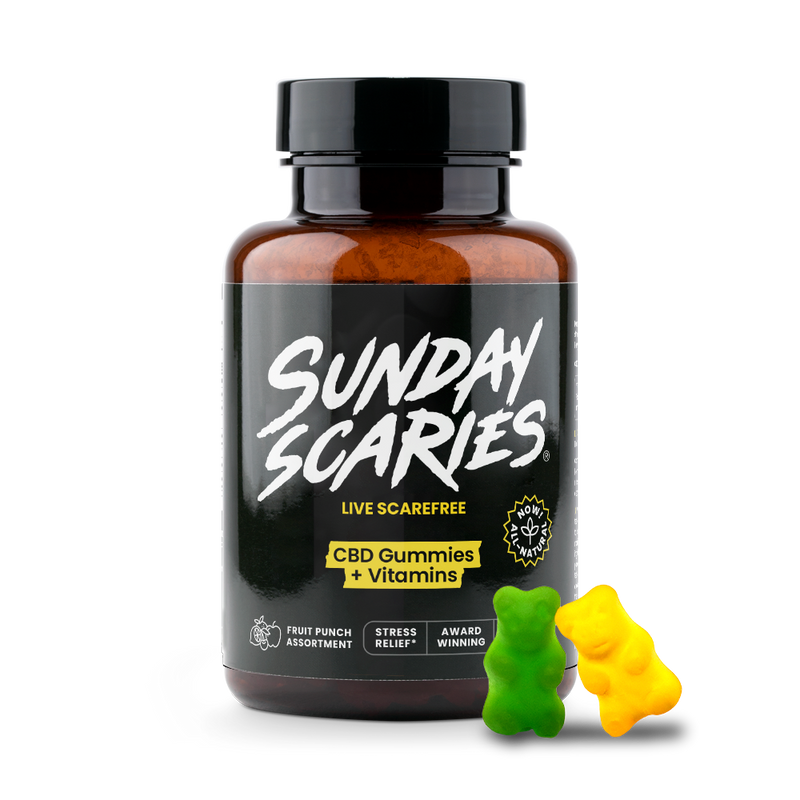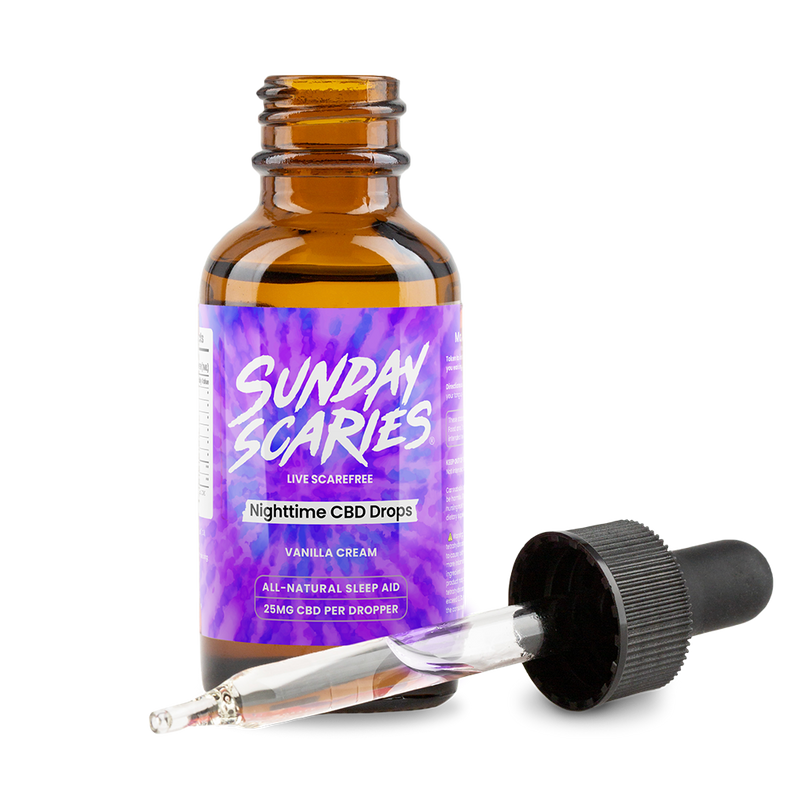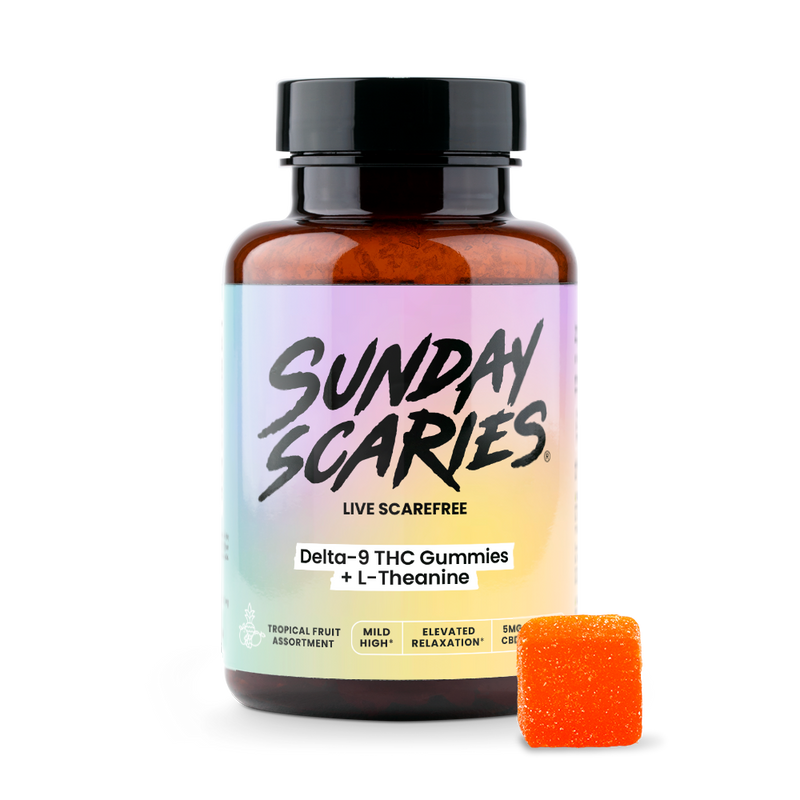
Hangover Depression: An Alcohol Abuse Guide for Gen Z & Millennials
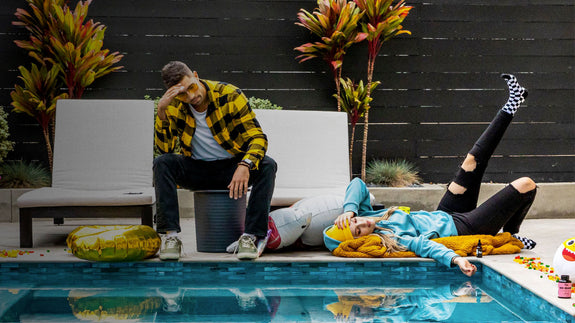
There’s no denying it – weekends can be a blast, especially for us millennials and college students. We work hard throughout the week and look forward to letting loose over the weekend.
However, do you feel depressed after drinking alcohol? Or lost and deflated after drinking?
If so, you may be experiencing something called Hangover Depression.
This is a phenomenon, which causes mental health difficulties for many young adults.
In this blog post, we will delve into the intricacies of Hangover Depression - defining its symptoms and offering valuable tips to help you navigate through it. Our aim is to ensure you can continue to be the life of the party, while effortlessly embracing a Scarefree lifestyle.
What is Hangover Depression?: The Buzzkill
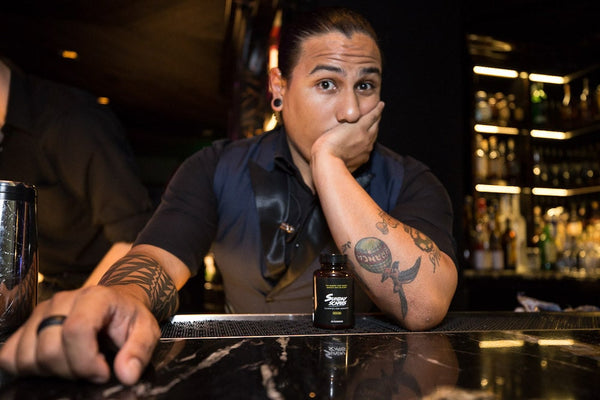
The term "Hangover Depression" refers to the emotional and psychological symptoms experienced after the effects of alcohol or substance use have worn off (typically following a period of excessive drinking or substance abuse).
This condition is characterized by feelings of sadness, regret, anxiety and low mood, often accompanied by physical discomfort, such as headaches and nausea when you stop drinking.
It is a transient state of emotional distress that can result from the physiological and chemical changes in the brain caused by alcohol consumption or drug use.
Hangover depression is a reminder of the potential mental health and physical consequences of excessive alcohol consumption or substance misuse and can vary in intensity from mild to severe.
Depression after Drinking: Delinquently Described
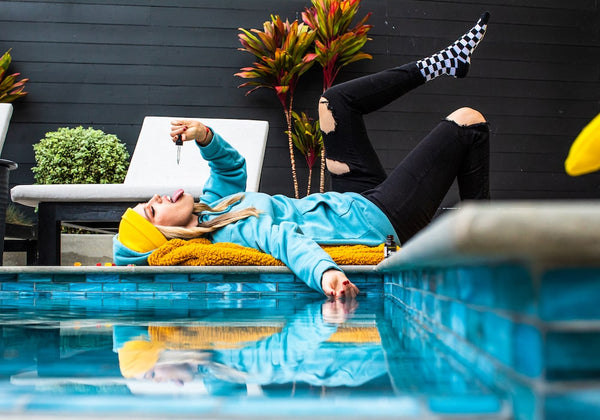
Depression after drinking is like waking up after a wild party, only to find that the vibrant colors of the night before have all turned to shades of gray.
You know, that gnawing feeling that suddenly everything is a bit 'meh'? All the pumped-up energy and high spirits you had are now replaced with an inexplicable emptiness.
It's like the universe pulled a fast one on you - you were the life of the party and now, you're feeling low and lifeless, like an overplayed party song in the wee hours of the morning.
Think of it like this: One moment, the world is your dance floor; you're surrounded by friends, each beat of the music is pulsing through you and you're living your best life.
Then the next day, the dance floor disappears - it turns into a tricky tapestry of emotions, tangled with feelings of regret, anxiety and sadness.
You might even start second-guessing all your choices from the night before.
Like scrolling through your camera roll the morning after a party and cringing at the photos, or checking your texts and realizing you sent a "U up?" text to your ex and got left on "read".
That's hangover depression for you - it's the buzzkill that shows up uninvited after the party's over, making your central nervous system go haywire.
How Alcohol Consumption Affects Your Mental Health

Drinking alcohol won't just make you feel depressed and have you searching your couch for that missing credit card (HINT: you left the credit card at the bar), it causes other problems as well:
Heavy alcohol affects your brain chemistry by changing your norepinephrine levels, which are associated with arousal and stress responses. These changes can contribute to increased anxiety and restlessness.
Do the "Sunday Scaries" ring a bell?
Alcohol intake disrupts the normal sleep cycle and causes poor sleep. As the body metabolizes alcohol, it can lead to awakenings during the night. It also reduces the amount of rapid eye movement (REM) sleep, which is the stage of sleep associated with dreaming and memory consolidation.
Passing out isn't considered healthy sleep, unfortunately.
Alcohol use can put you at a higher risk of developing depressive disorders, anxiety disorders and other alcohol use disorders. Those struggling with mental health conditions may turn to alcohol as a form of self-medication, which can worsen their symptoms and lead to a vicious cycle.
Why do we always seem to forget the pain of last weekend when Friday hits?!
Drinking alcohol can impair your cognitive functioning and lead to memory problems. Drinking more alcohol than needed can cause blackouts, memory lapses and difficulty processing information.
Brownouts cause the same issues, nice try though.
Now that we know how drinking can negatively affect you in general, let's look at the symptoms of Hangover Depression specifically.
The 7 Symptoms of Hangover Depression
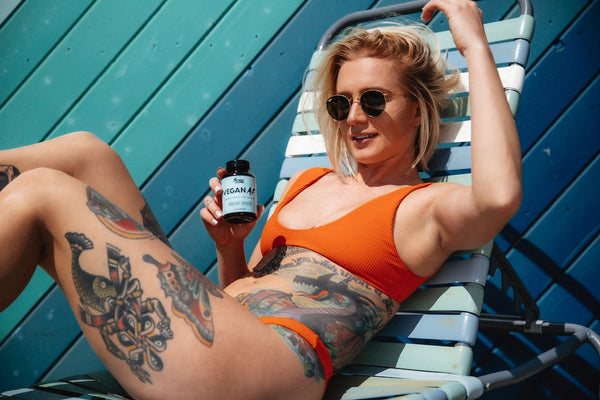
There's no one-size-fits-all when it comes to the symptoms of Hangover Depression.
It's a crafty little monster that manifests differently in everyone, depending on your body, brain chemistry and how much you decided to party.
However, there are some common symptoms of depression that many of us may experience. Check 'em out!
Symptom 1: The Regular Hangover Symptoms
We all know the classic hangover demons: panic attacks, headaches, body aches, nausea, fatigue - these are caused by dehydration and the body's attempts to flush out toxins from alcohol or substances.
Having these physical symptoms can directly trigger feelings that are negative and detract from your overall well-being.
Alcohol induced depression often starts its mental illness pattern by manifesting itself in the body.
It can be summarized with statements or questions to yourself like:
"Uggh I feel like shit, I'm quitting drinking and never going out again."
"My body feels like it got hit by a train, did I fall down last night?"
"What time did I fall asleep? I'm freakin' exhausted."
If you drink regularly and wake up with normal hangover wear and tear, it could be the catalyst in having you feel depressed after drinking.
Symptom 2: The Negative Nostalgia
After a weekend of non-stop partying, it’s not uncommon to feel a sense of negative nostalgia. This is also known as "regretful nostalgia" or "bitter nostalgia".
Once the alcohol wears off, your brain chemistry changes. When you recollect the events from the night before they can produce unhappy, painful or regrettable feelings...even if they were enjoyable while they were happening.
Maybe you finally approached your hot crush and thought you were smooth at the time but realized you were slurring your words.
Maybe you felt like a king or queen at the bar, buying shots for everyone there, only to feel bitter the next day that you paid for the whole bill.
In some cases, you may even feel nostalgic for the times before you started drinking or using substances.
When these negative feelings and thoughts linger, it could be a sign you need to manage depression.
Symptom 3: The Dissonance Diss
You can thank psychologist Leon Festinger for this one. He discovered it in 1957.
Dissonance refers to cognitive dissonance, which is the glass case of emotional discomfort you experience among conflicting attitudes, beliefs and behaviors.
For something like a 4th of July weekend, your weekend-ego probably took control around Friday afternoon & didn't wrap up until Sunday evening.
Cognitive dissonance sets in Sunday evening because that's when your ego changes. It's the period when your weekend-ego transforms back into your weekday-ego, both of which are contrastingly different.
Your weekend-ego represents your social-self: carefree, relaxed, outgoing, sociable & wild. You were everything you aspired to be.
However, your weekday-ego represents your professional-self: disciplined, motivated, focused, productive and yearning for healthy habits.
With alcohol abuse, the conflict also lies between the perceived social norms of a fun weekend versus the after-effects of it.
The result is a sense of dissonance that can exacerbate negative feelings and make you feel depressed.
Symptom 4: The Isolation Station
After spending all weekend drinking alcoholic beverages and laughing with your friends and family, you wake up on Sunday only to find yourself alone again.
You're back to sheltering in-place on your couch with Netflix and the only human contact you'll have for the rest of your Sunday night is from the UberEats delivery guy.
For the first time in almost 48 hours the music has quieted and you're alone with your thoughts. Yikes!
What's worse? Loneliness has a tendency to agitate your nostalgia and cognitive dissonance.
People drink to socialize and it's woven into the social fabric of the United States. But, unfortunately, the dark side of the negative emotional effects that come in the lonely aftermath are often kept in the shadows.
Maybe you start drinking with friends only to find you end up drinking alone.
Symptom 5: Hangxiety
Hangxiety is that gnarly blend of hangover and anxiety that sneaks up on you after a rave or two.
Imagine waking up with not just a headache but a heart that's racing faster than when you get pulled over by the cops.
It's that unsettling worry that creeps in and makes you question every single detail of the night before.
It's the racing thoughts, the sweaty palms and the stomach-churning unease of life.
It's anxiety on a roller coaster ride, fueled by alcohol. It's far from the party souvenir you'd want to take home.
Anxiety is the fear of what's to come. It is the encapsulation of future-based feelings of uncertainty, worry and doubt into one, easy-to-swallow pill.
While nostalgia, dissonance and loneliness represent emotions tied to the past and present, hangxiety focuses on the future.
How will your weekend decisions have negative effects on your work week?
Will you be clear-minded and productive on Monday?
Will your co-workers and boss know that you didn't have "just one drink"?
Your depression range goes from 0 to 100 real quick when you start thinking about your responsibilities.
Symptom 6: Faulty Mood Regulation and Irritability
A night of binge drinking can deplete your serotonin levels - the neurotransmitter responsible for regulating mood and emotions.
When your serotonin levels are low, you might experience feelings of sadness, irritability, and overall low mood.
Oftentimes after heavy drinking you have little patience or regard for others.
Maybe you promised a friend you'd help them move a couch on Sunday morning, only to wake up, get defensive and text them something nasty like, "why do you always need to use my truck?!?"
Small things like your elevator taking too long to get to your floor or not getting quality sleep due to self-inflicting decisions can cause you to be angry.
If these difficult feelings persist even after the physical signs of a hangover have subsided, it could be one of the symptoms of depression.
Symptom 7: The Mirror Monster
Enter the Mirror Monster - a distorted reflection of yourself that only rears its ugly head in the throes of Hangover Depression.
When the heavy drinking burns off, you're not merely wrestling with regret over last night's antics or dreading the work week ahead.
And you're not just perturbed and moody with your loved ones.
Now, you're confronting a deeper, existential crisis. You catch a glimpse of yourself in the mirror and instead of seeing the fun-loving, vivacious person who was the life of the party last night, you now see a stranger.
This stranger is mired in self-doubt, questioning their worthiness, their existence, even their likability.
It's like you're looking through a funhouse mirror that amplifies your flaws and diminishes your strengths.
Excessive alcohol consumption can turn yourself into your own worst enemy. You start to beat yourself up and say things like:
"Why the hell did I do this to myself again?!"
This alcohol dependence can cause a never-ending weekend to weekend spiral that exacerbates and compounds with time.
Remember, this is just the Hangover Depression talking. Don't let the mirror monster overshadow your true, amazing self.
If your depression symptoms are severe, or you think you are clinically depressed, please contact a mental health professional immediately for depression treatment. You can go to Better Help now and connect with a therapist right away for mental health treatment.
7 Tips for Overcoming Hangover Depression: The Bounce Back
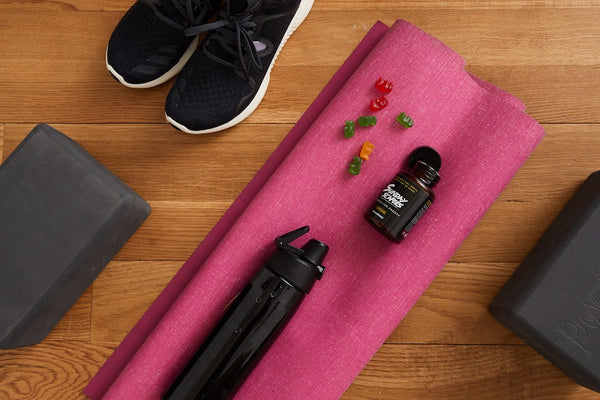
Ok, so we just went over the tormenting symptoms of alcohol use and how alcohol can crash your life (Sundays in particular). Now it's time to learn how to bounce back.
The biggest thing to remind yourself while reading this is that, "this too shall pass".
Check out the seven tips that are all techniques for dealing with the corresponding symptoms listed above:
Tip 1: Hydrate and Rest
To combat the regular hangover symptoms that may lead to Hangover Depression, it's crucial to hydrate and rest adequately.
This helps your body recover from the physical strain and may alleviate the accompanying feelings of sadness.
Drink water and check out this list for the best foods to eat when hungover so you can order or cook something that negates alcohol's effects.
Beyond drinking water, the list also offers a ton of comfort and healthy drinks that will help you recover.
Alcohol slows the central nervous system, which can initially make you feel drowsy, but it disrupts the natural sleep cycle, leading to fragmented, less restorative and disturbed sleep, which often leaves you feeling groggy the next morning.
Relax and go to bed early on your hangover day, ensuring you get the REM sleep you need so the day after isn't a nightmare as well.
Tip 2: Reframe Your Thoughts
Negative nostalgia can be countered by reframing your thoughts. Instead of dwelling on the regrettable actions from the night before, try focusing on the positive experiences you had and the fun you enjoyed.
Cherish the nostalgic moments of you dancing on a table or sounding like a surprise dental appointment when hopping on the karaoke mic.
In the wise words of Drake, "YOLO". You Only Live Once, so instead of letting these memories break you down, laugh at them in the face and be glad you had a fun time.
If you did end up doing something that is serious and actually warrants regret, then go back to your kindergarten ways and just apologize to whoever you offended.
This will go a long way for that person and will also lift the anvils that are weighing down your shoulders.
Ultimately, nostalgic moments define what has meant most to us in our lives. Those moments symbolize our best thoughts of ourselves and who we want to become.
Even if they do only come out when you're drunk.
Tip 3: Maintain Consistency
The best way to combat the symptom of cognitive dissonance is to support the transition between your two egos.
Take some time Sunday night to incorporate your weekday-ego values into your Sunday night routine. Check some work emails, prepare a to-do list and sign up for a Monday morning workout class.
The dissonance diss can also be managed by maintaining consistency in your actions and beliefs.
Try to balance your weekend-ego with your weekday-ego and remember that your social and professional selves can coexist harmoniously.
Yes, it can be hard to balance the two when your one self says "just go out for one drink" and the other self says "I have work in the morning," but compromising is key.
Decide beforehand what you plan on doing to avoid any surprises, or at least check with yourself before making any impulsive decisions.
One thing I do to help me with consistency is to put a "Drink Cap" on how much alcohol I consume each night. It sounds nerdy but drinking alcohol excessively always causes problems, so you might as well mitigate those.
On a final note, if you want to avoid depression entirely try going out and not drinking alcohol at all. It sounds scary AF but it's actually not the worst thing in the world.
Tip 4: Stay Connected
When loneliness starts to settle in, the best way to combat the feeling is...wait for it...interact with people!
Sunday night is the perfect time to FaceTime a friend or relative you haven't talked to in awhile or to go for a walk in a public place.
Countering isolation involves staying connected with your loved ones after the social weekend and alcohol wear off.
You can also plan for leisurely activities during the week that allow you to spend time with friends or family, maintaining a sense of social connection.
Having something to look forward to during the week can also help break up the monotony and drudgery of work or school.
If you're feeling depressed after drinking, don't hesitate to reach out to a supportive friend or family member.
Sometimes talking things through with someone else can provide much-needed perspective and comfort.
And hell, maybe they're dealing with isolation too and you can kill two birds with one stone.
Tip 5: Live in the Present
Address hangxiety by focusing on the present rather than the future.
Mindfulness techniques, such as meditation and breathwork, can help you stay grounded and lessen anticipatory anxiety.
It's important to not dwell on the, "what if," and instead focus on what is happening right now.
Take some deep breaths, do some stretching, go on a hike to stomp out stress or listen to calming music to help you stay in the present moment.
The less you worry about the future, the more likely it is that your alcohol induced depression will pass quickly.
Depression after drinking is often intertwined with the Sunday Scaries, that feeling of dread and anxiety you get on Sundays before the impending week of responsibilities ahead.
Alcohol and depression are like cake and Sunday Scaries is the cherry on top. Figure out how to beat the Sunday Scaries and conquer anxiety here.
Tip 6: Engage in Mood-Boosting Activities
Low mood and irritability can be combated by engaging in activities that are proven to elevate your mood.
Physical exercise, spending time in nature and creative self-expression are all keys to getting out of your crabby cage.
Being depressed after drinking is common and so is being a bit aggravated. What's not common is getting outside, getting your sweat on and focusing on the here and now so you can break free from the binds of depression.
When you do something active, your body releases endorphins. These are also known as the "feel-good" chemicals because of their ability to create a sense of well-being and reduce pain perception.
When you get a workout in or apply your effort into a side-passion, you'll gain a sense of accomplishment and confidence which will also help brighten your mood and snap out of the funk.
Don't just sit around in a dark room and rot on your couch. Get up and get moving!
Tip 7: Practice Self-Love
To conquer the mirror monster, practice self-love and self-acceptance. Understand that your worth is not defined by your mistakes and that everyone has moments of self-doubt.
Recognize that your self-critical thoughts are not true reflections of who you are as a person.
Instead, try to focus on your positive qualities and achievements.
Treat yourself with compassion and kindness (just as you would treat a friend who is feeling down).
Self-care activities can also help combat feelings of depression after drinking. Take a warm bath, light some candles, listen to your favorite music, etc. Keep it simple, yet effective.
Spend some time doing things that make you feel happy and relaxed. You deserve to take care of yourself and to be gentle with yourself during this time.
Remember that change is a continuous process and it's okay to have setbacks. Don't be too hard on yourself if you struggle with depression after drinking.
Remembering that it's the alcohol use talking (not you) can help you to avoid self-harm and other mental health issues.
Wrapping Up: Cheers to a Balanced Life
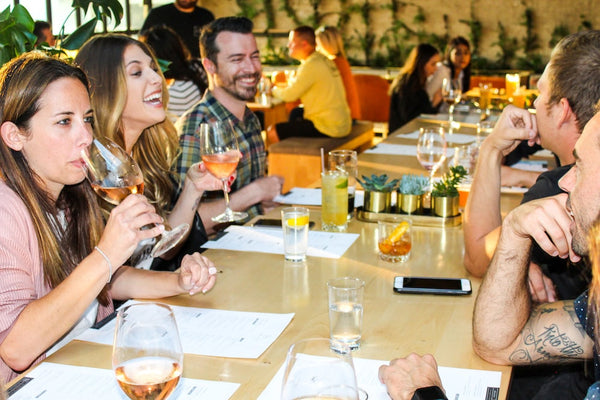
At the end of the day, we're all about embracing the good times, while also nurturing your well-being.
So, we're not saying drinking alcohol is the devil, but more about creating some balance so your depression after drinking doesn't turn into an alcohol use disorder.
We've walked you through the seven tips to tackle the after-effects of a big weekend, helping you cope with everything from physical pain to negative emotions.
When the depression alcohol brings starts to creep in, remember to drink plenty of water, reframe your negative emotions, don't let your alter-ego haunt you, and lean on friends & family and the (wo)man in the mirror to show you the love you deserve.
The impact alcohol has is serious but let these tips remind yourself that it's okay to have a good time without sacrificing your peace of mind.
Before reading this article, the term "hangover depression" must have been a scary thing. Well, now it's not.
Cheers to a balanced, Scarefree life.

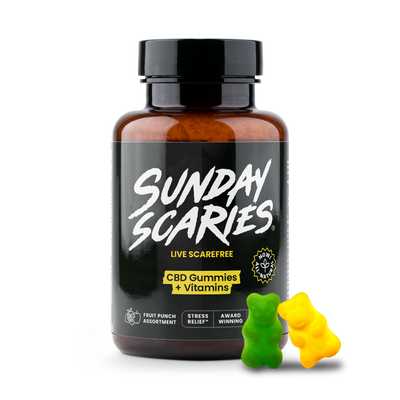 CBD Gummies
Stress Relief
CBD Gummies
Stress Relief
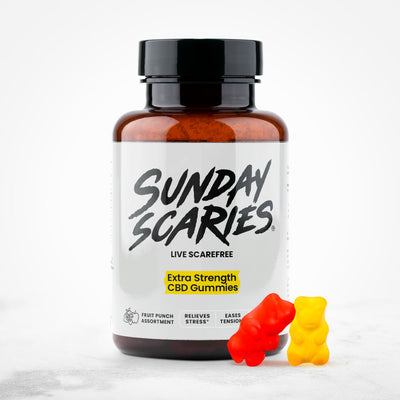 Extra Strength CBD Gummies
Stress Relief
Extra Strength CBD Gummies
Stress Relief
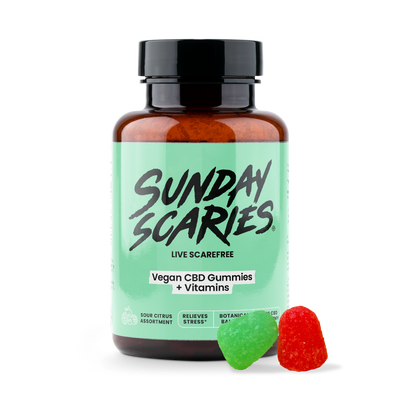 Vegan CBD Gummies
Stress Relief
Vegan CBD Gummies
Stress Relief
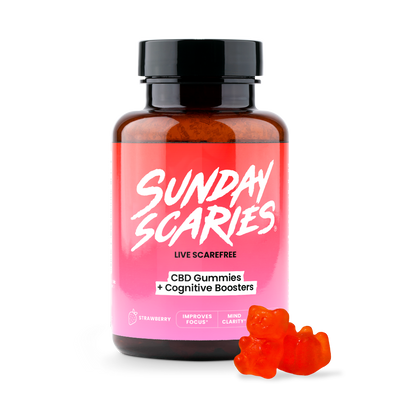 CBD Gummies for Focus
Focus Boost
CBD Gummies for Focus
Focus Boost
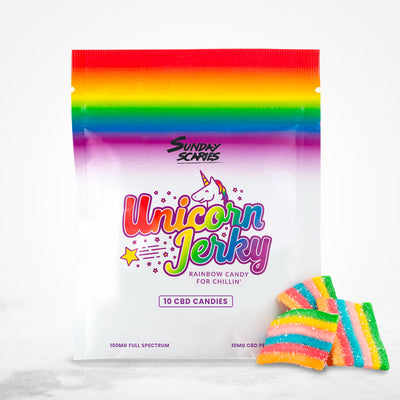 CBD Candy
Mood Lift
CBD Candy
Mood Lift
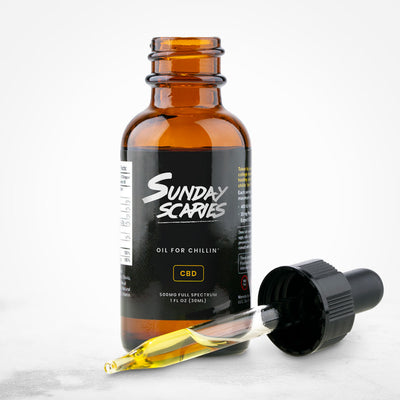 CBD Daytime Oil
Stress Relief
CBD Daytime Oil
Stress Relief
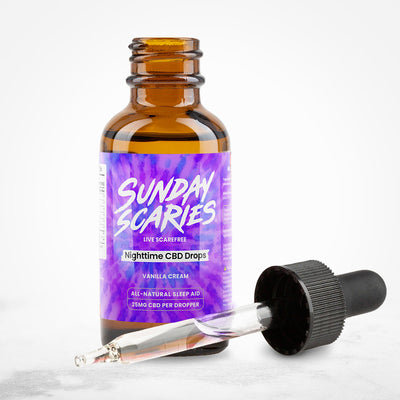 CBD Sleep Oil
Sleep Aid
CBD Sleep Oil
Sleep Aid
 CBD Dog Treats
Stress Relief
CBD Dog Treats
Stress Relief
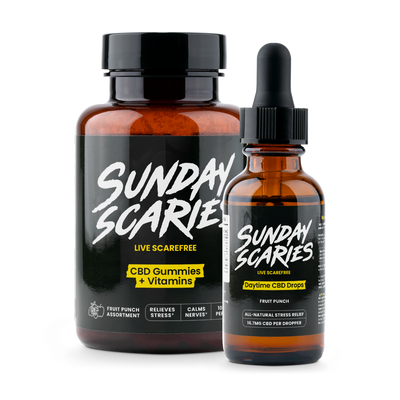 Side Piece Bundle
Stress Relief
Side Piece Bundle
Stress Relief
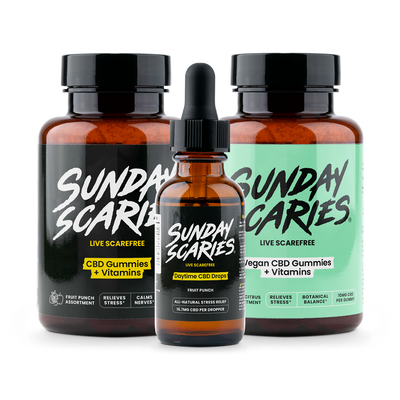 Rando Bundle
Stress Relief
Rando Bundle
Stress Relief
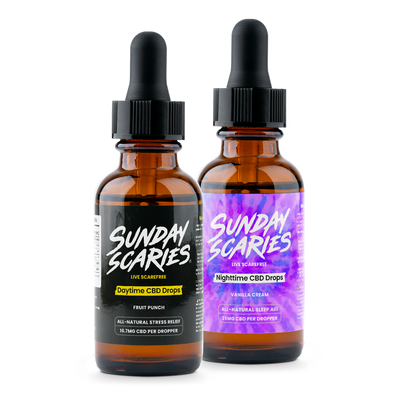 Sunrise & Sunset CBD Oil Bundle
Stress Relief
Sunrise & Sunset CBD Oil Bundle
Stress Relief
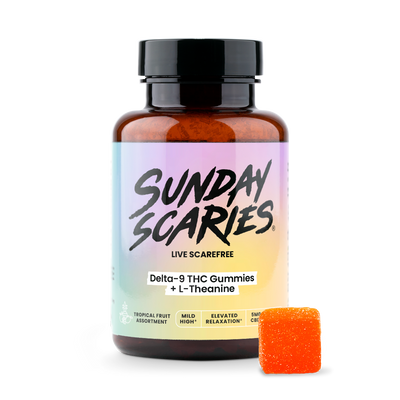 5mg Delta-9 Gummies
Euphoria
5mg Delta-9 Gummies
Euphoria
 10mg Delta-9 Gummies
Euphoria
10mg Delta-9 Gummies
Euphoria
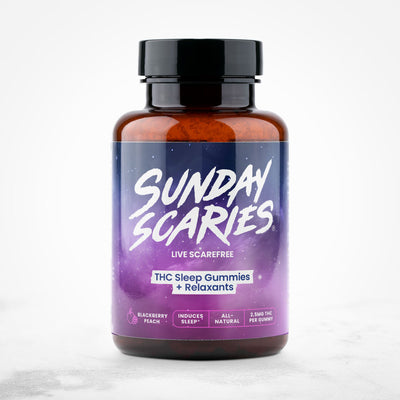 THC Gummies for Sleep
Sleep Aid
THC Gummies for Sleep
Sleep Aid
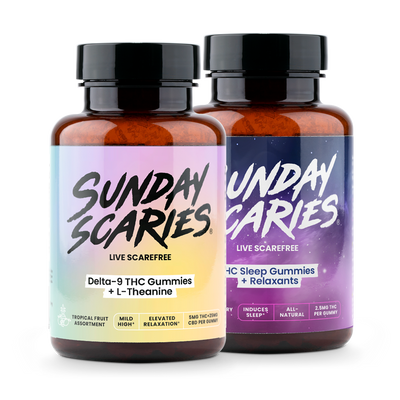 Day & Night THC Gummies Bundle
Stress Relief
Day & Night THC Gummies Bundle
Stress Relief
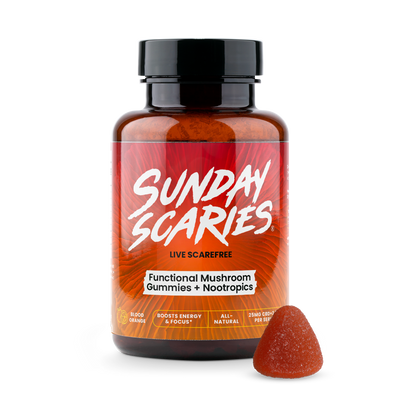 Mushroom Gummies
Focus Boost
Mushroom Gummies
Focus Boost
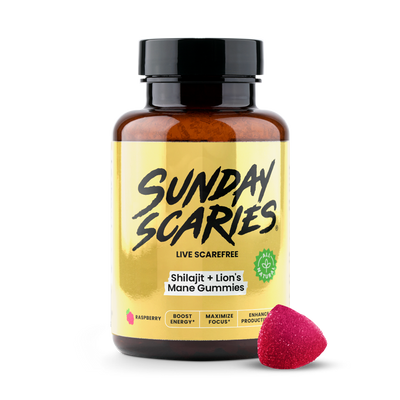 Shilajit Gummies
Focus Boost
Shilajit Gummies
Focus Boost
 Sunday Scaries Hat
Sunday Scaries Hat
 Sunday Scaries Dad Hat
Sunday Scaries Dad Hat
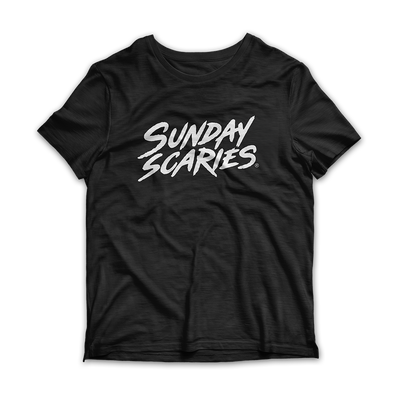 Sunday Scaries T-Shirt
Sunday Scaries T-Shirt
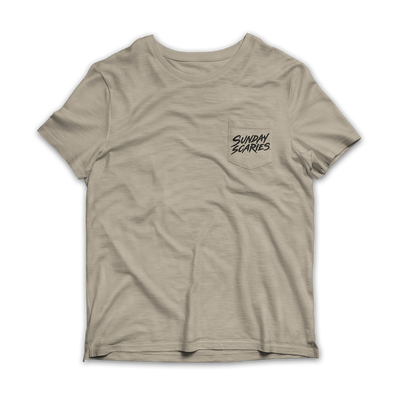 Sunday Scaries Pocket Tee
Sunday Scaries Pocket Tee
 Sunday Scaries Tank Top
Sunday Scaries Tank Top
 Sunday Scaries Sweatshirt
Sunday Scaries Sweatshirt
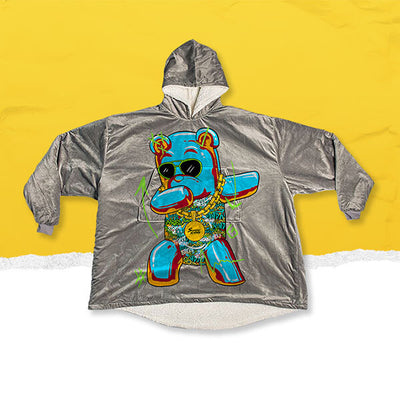 Sunday Scaries Blanket Jacket
Sunday Scaries Blanket Jacket
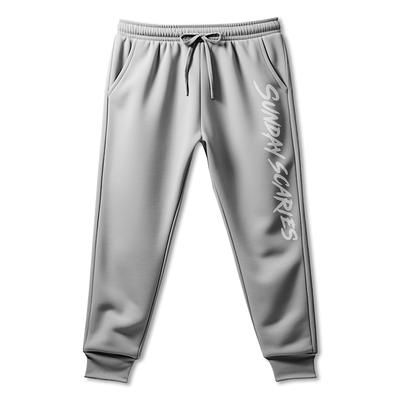 Sunday Scaries Sweatpants
Sunday Scaries Sweatpants
